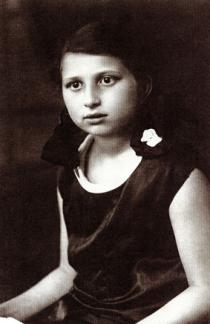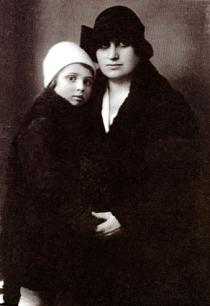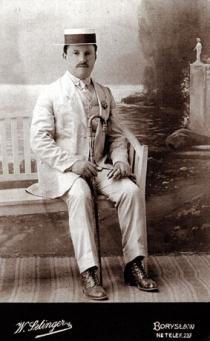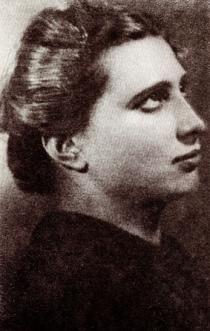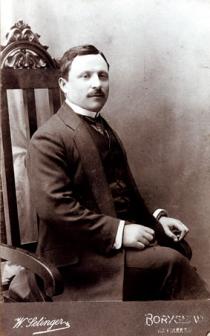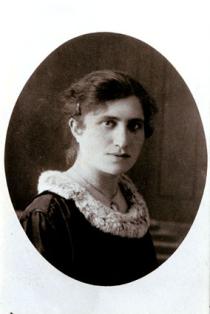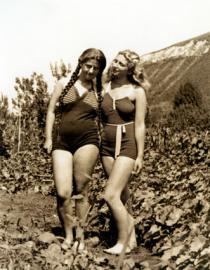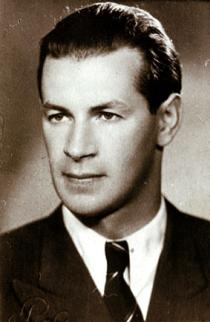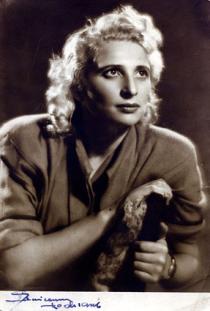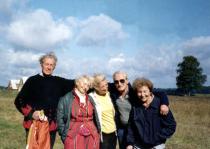This is my father Markus Presser. The photo was taken in Boryslaw (today Ukraine) in the 1920s.
This is one of the photograph’s I got from my cousin Howard. Howard (Hagaj) Gelb was the son of Simcha, my mother's eldest brother. Howard was born in Poland; in 1926 he emigrated with his parents to the United States. Ten years ago he came back to Poland, the country of his childhood. We were together for several days and I became very close to him. When Howard went back to the States, among the family papers he found photographs of my family and sent them to me. These are the only pre-war photographs I have. The rest was lost.
This is one of the photograph’s I got from my cousin Howard. Howard (Hagaj) Gelb was the son of Simcha, my mother's eldest brother. Howard was born in Poland; in 1926 he emigrated with his parents to the United States. Ten years ago he came back to Poland, the country of his childhood. We were together for several days and I became very close to him. When Howard went back to the States, among the family papers he found photographs of my family and sent them to me. These are the only pre-war photographs I have. The rest was lost.
My father, Markus Presser, was born in the small town of Gwozdziec, near Kolomyja, in 1894. He was an orphan and a self-educated man. His mother died giving birth to him, his father died when he was about two or three. He was taken care of by his teenage sister, Chana, and his brother, Abraham. Chana died at twenty-something.
Dad was left with the older brother, who became a surrogate father to him. Abraham got married and had his own children. Apparently he was an excellent tailor, but he wasn’t well-off. He wanted to secure an education for my father but couldn’t systematically pay for school.
So Dad studied on his own and each year took official extramural exams in the public school in Stanislawow. In his childhood my father had three friends: one of them later became a doctor; his name was, if I remember correctly, Schwartz; one later owned a restaurant; the third was the father of Konstanty Puzyna [well-known theater critic (1929-1989)]. The latter had a wonderful library and my father borrowed lots of books from him.
In the part of Poland under Austrian partitions elementary public school went up to the 10th grade, but after the 4th grade, at ten, one could move to a secondary school. My father managed to get into a secondary school after passing his 5th grade extramural exams. That was in 1907.
After the exam, the head of the examination committee, Doctor Einer, offered to enroll my father in a secondary school in Stanislawow, where he was the principal. He also offered my father a place to stay: doctor Einer’s wife ran a lodging-house for students and my father was to get a room in exchange for tutoring her lodgers. There were three or four boys, not particularly bright, who needed help with their school-work. Of course my father agreed immediately. That was a private Austrian school, where the language of instruction was German.
My father’s passion was linguistics, his specialty comparative grammar. He knew Arabic. He learned the language all on his own, but I can’t remember where he got the textbooks and whether someone gave him that idea or it was all his own. Probably it was his own, because he tended to take charge of his own studies.
He found out about Zionism when he was in the army. After he did his service he started teaching at the Tarbut school in Lwow where, in addition to the general subjects, Jewish history and culture were taught. My father taught Hebrew. That was the school established by Simcha, my mother’s older brother. That’s where my parents met.

